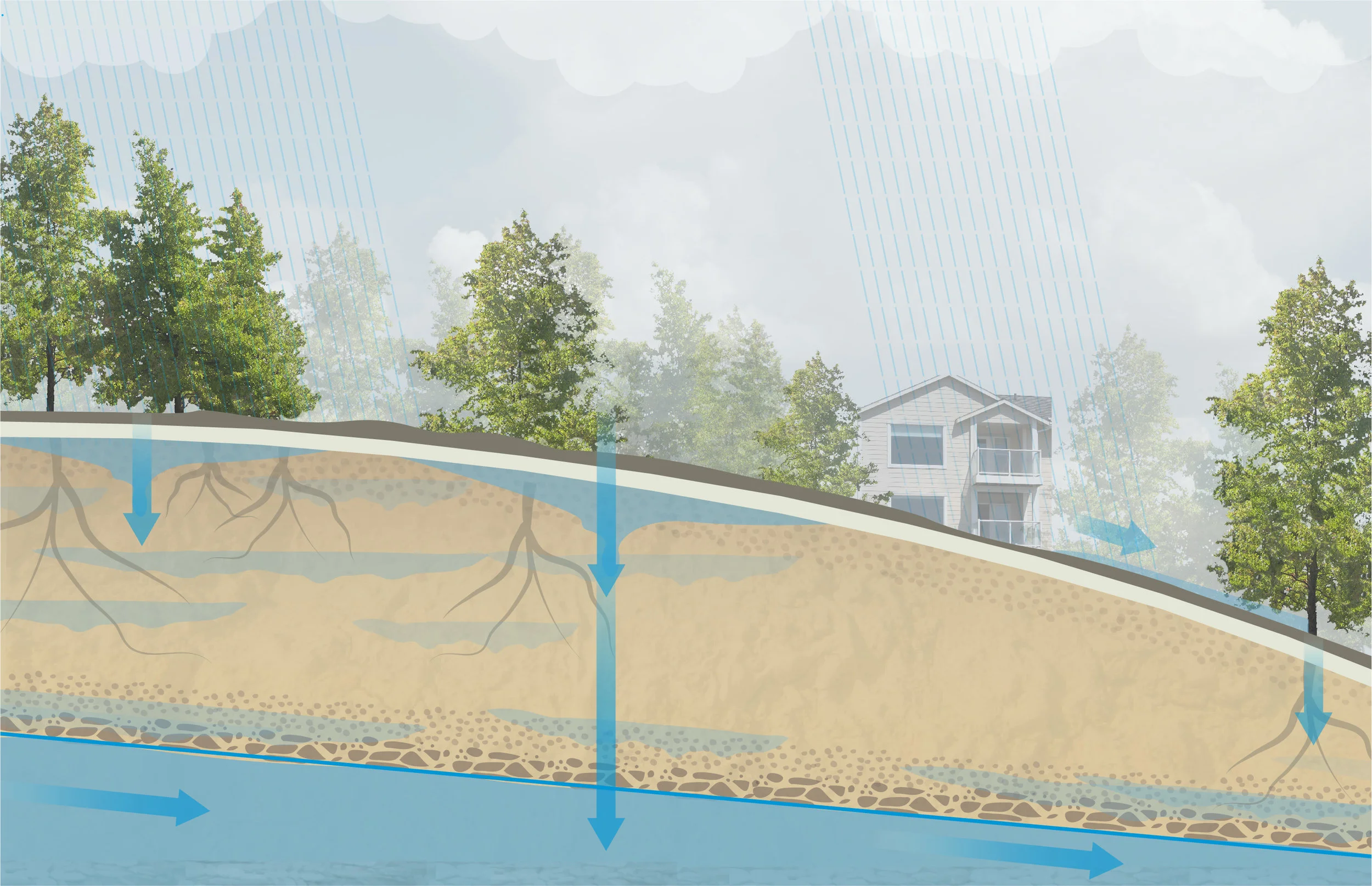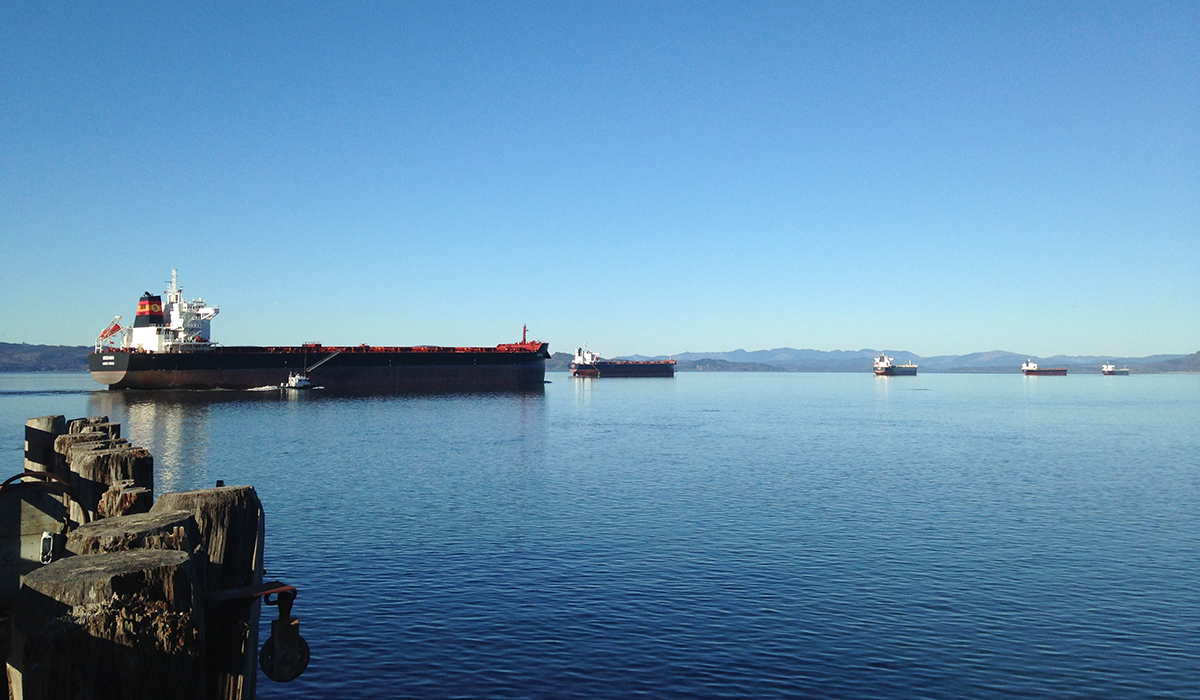Speak up for cleaner air for all Washington’s communities by submitting a public comment to the Department of Ecology as they shape our new air quality program.
Shaping policy to cut carbon
Support a Healthy Environment for All Washingtonians
Environmental Justice Task Force Issues Recommendations
Expectation: big climate progress
Our science has advanced—Our climate targets must too
Boeing Gives Big to Support Our Work to Clean Up Puget Sound
Two-minute takeaway: What is Infiltration?
Cargo, Conversation & Conservation
Adapting to the new image of nature
Written and Photographed by by Melissa Laird, Associate Director of Philanthropy and Laura Nelson, Marc Hershman Marine Policy Fellow
If you close your eyes and think of Puget Sound, what do you see? Beaches, wildlife, boats?
Last week, as we looked out the windows of our Seattle office in the heart of Pike Place Market, we saw more commercial vessels navigating through one of our state’s natural icons than ever before. While the crowded waterway that day might have been an anomaly for the current time, this could be an increasingly familiar scene in the near future.
There are several proposed port expansions that would add volume to the roughly 10,000 deep draft vessels already annually plying the waters of the Salish Sea. These ships will also be carrying cargoes like oil and coal; not things we want ending up in the water. There are many existing safety measures already in place in the Sound and groups like the Coast Guard work hard to protect it from oil spills. However, there is still work to be done to ensure the system is ready to handle the proposed increases or to make it more robust even if those expansions do not end up getting built.
The Nature Conservancy, along with several partners like the Makah Tribe, is working to facilitate discussions between federal, state, provincial, tribal, and first nation groups in the United States and Canada to improve coordination, communication, and capacity in oil spill prevention and planning efforts. We need to keep oil out of the water if we want to protect the marine habitat we treasure and that orcas and salmon call home.
How do we continue to protect that pristine image that you see when you close your eyes? Having an open dialogue with partners and working together on solutions is a good first step. And we’re committed to being part of this conversation.































